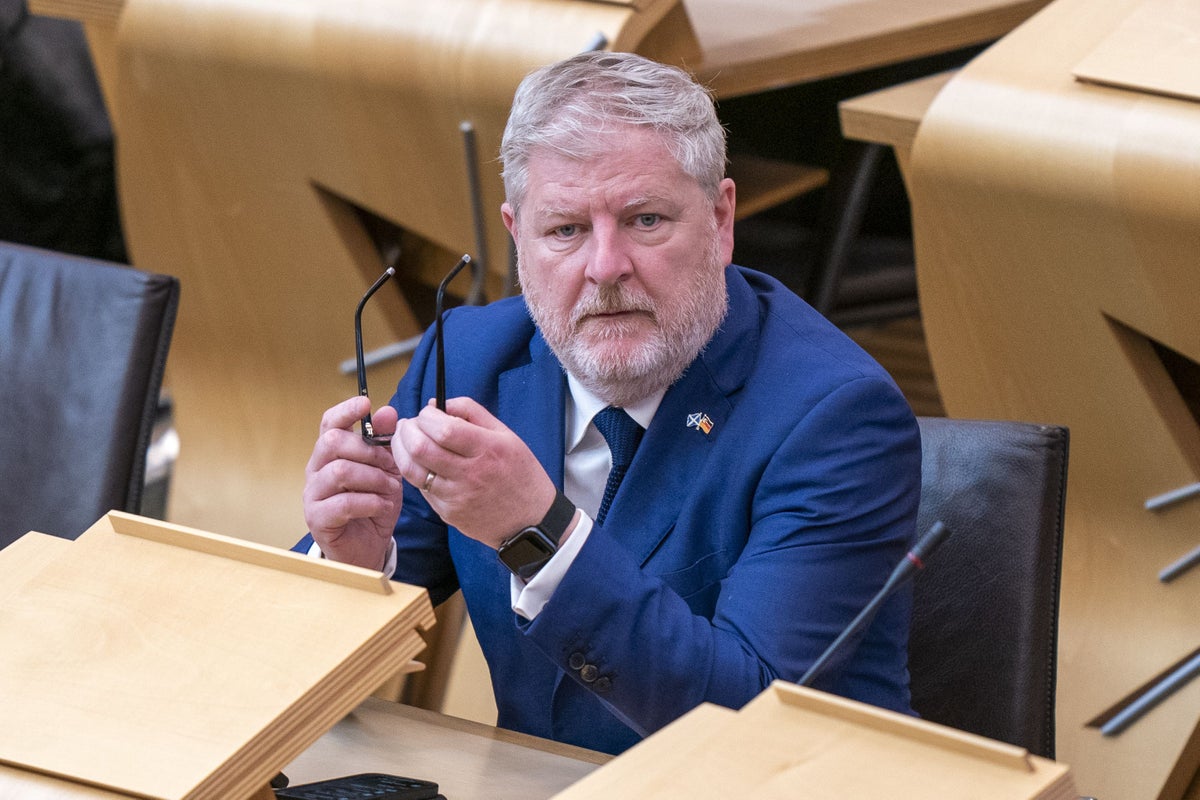
Scottish government “transgressions” at meetings with foreign ministers resulted in the UK taking a tougher stance over international discussions, Alister Jack told MPs.
The Scottish Secretary insisted his UK government colleague, Foreign Secretary James Cleverly, was “right” to take a firmer line.
Mr Cleverly last month wrote to UK officials, instructing them to take a “strengthened approach” to visits involving Scottish ministers and overseas governments, urging them to ensure Westminster representatives were also present for any talks.
But the move angered Scottish External Affairs Secretary Angus Robertson, who accused the Foreign Secretary of making “misleading” statements as he called for the guidance to be withdrawn.
With Scottish Affairs Committee chair Pete Wishart suggesting at a meeting on Monday that the guidelines “seemed to be provocative”, Mr Jack said he “absolutely approved of the content of the letter”.
The new guidelines do not, as claimed, hinder the Scottish government’s abilities to engage overseas— Scottish Secretary Alister Jack
Mr Jack claimed in meetings with foreign administrations, Scottish government represenatives had been “straying into territories of the constitution and foreign affairs” by talking about matters such as Brexit and Scottish independence – noting these areas are under the control of Westminster.
“We don’t think that our high commissions, our embassies, our consulates should be used for that purpose,” Mr Jack insisted.
He told MPs: “We believe the United Kingdom infrastructure should be used for the Scottish government to promote trade and culture and other things we have agreed, the devolved areas we have no problem.
“But once you go into the reserved areas and start talking to those, we take exception to it.”
The Scottish Secretary insisted to the committee: “The new guidelines do not as claimed hinder the Scottish government’s abilities to engage overseas.”
Hitting out at Mr Robertson, the Scottish Secretary however said the guidance “didn’t go down very well with old Air Miles Angus for a very good reason – that is because he took offence at us calling him out visiting governments and talking to them about matters we know are reserved, the constitution and foreign affairs”.
Mr Jack said an “indication” had been given to the Scottish government in November that such behaviour “needed to stop”.
But he told the committee: “It was ignored, and it actually got worse.
“There were five of six other examples actually brought to light to the Secretary of State, of transgressions of what we thought was the right position, and that was when the letter went.
“I feel it was the right letter, I saw the letter, absolutely approved of the content of the letter… because I think it is wrong for us to facilitate using our embassies and high commissions for members of devolved administrations to then go and meet foreign government ministers and undermine our foreign policy which is what they were doing.”
Despite his comments, Mr Jack insisted his assessment of how the Scottish and UK governments were working together was “a very positive one”.
Mr Wishart told him: “I don’t think intergovernmental relations have ever been at such a low ebb between the UK and Scottish governments.
“They seem to be characterised by mistrust, never ending conflict, and a sense of diktat.”
Mr Jack told him he had tried to use his role to set out “a clear position from the UK government, so the Scottish government know where we are, not to fudge any issues”.
He summed up the two administrations’ differing stances on Scottish independence by saying: “The Scottish government get up each day and go to work to destroy the United Kingdom, I get up and go to work each day to strengthen the United Kingdom.”
Mr Wishart asked if remarks such as that were “helpful”, but the Scottish Secretary told him: “I am honest, it is an honest position, they want to destroy the United Kingdom.
“I think if we come at this honestly and acknowledge they want to destroy the United Kingdom, they want to bring it to an end, they want to break it, whatever language you want to use.”







